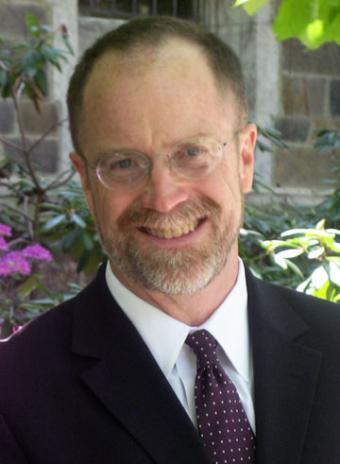PROVIDENCE, R.I. [Brown University] — Following an international search, Michael D. Kennedy has been named the Howard R. Swearer Director of the Watson Institute for International Studies at Brown University. His appointment as director and professor of sociology and international studies was announced today by Brown University Provost David I. Kertzer. He will join the University in July 2009.
As director, Kennedy will provide intellectual leadership and strategic direction to the Watson Institute’s research and teaching on contemporary global issues.
At the University of Michigan, Kennedy is director of the Weiser Center for Europe and Eurasia and Weiser Center for Emerging Democracies, as well as professor of sociology and the Ronald and Eileen Weiser Professor of European and Eurasian Studies. He has held several leadership roles at Michigan, including vice provost for international affairs.
“Michael Kennedy is a leading intellectual in matters that are of great significance to the Watson Institute’s mission, and he has a track record of collaborating across academic disciplines to find new answers to pressing global problems,” Kertzer said. “He is also a seasoned administrator who has launched and developed important international centers of research and teaching.”
“With the ambition of its students, the distinction of the faculty, and the vision and commitment of President Simmons and Provost Kertzer to internationalize a great university, Brown offers the ideal academic setting for facing international challenges of varying range, duration and depth,” Kennedy said. “The Watson Institute has unique resources to create new scholarship, to move with agility across expert domains, and to support intellectual innovation with public consequence that is so badly needed in these times. I look forward to working with my new colleagues, our students, and the friends of Watson and Brown in developing the Institute’s full potential to address the vital concerns before us.”
Kennedy’s appointment follows an international search conducted by a committee of Brown faculty members and members of the Watson Institute Board of Overseers. The committee was chaired by Michael White, professor of sociology and director of Brown’s Population Studies and Training Center. Committee members included Peter R. Andreas, associate professor of political science and associate professor at the Watson Institute; James Der Derian, professor at the Watson Institute; Andrew Foster, professor and chair, Department of Economics, and professor of community health; Lina Fruzzetti, professor of anthropology; Robert Legvold, Board of Overseers, Watson Institute; Catherine Lutz, professor of anthropology and professor at the Watson Institute; David E. McKinney, a member of the Thomas J. Watson Foundation, the Brown University Board of Fellows, and the Watson Institute Board of Overseers; Johanna Schmitt, the Stephen T. Olney Professor of Natural History, professor of biology, professor of environmental studies, and director of Brown’s Environmental Change Initiative; and Vincent Tompkins, deputy provost (staff).
Michael D. Kennedy
Kennedy graduated with a B.A. in sociology and anthropology from Davidson College, and received a Ph.D. in sociology from the University of North Carolina. His current research focuses on the cultural articulation of democracy, peace, and energy security in Europe and Eurasia. He is author, among other works, of Cultural Formations of Postcommunism: Emancipation, Transition, Nation, and War (University of Minnesota Press, 2002), and Professionals, Power and Solidarity in Poland (Cambridge University Press, 1991). Polish President Aleksander Kwasniewski presented Kennedy with the Gold Cross of Merit to recognize his contributions to scholarship and education about Poland. A member of the Social Science Research Council’s board of directors, Kennedy chairs its executive committee.
Kennedy has received grants and fellowships from a number of organizations, including the National Science Foundation, American Council for Learned Societies, Mellon Foundation, Ford Foundation, and the Open Society Institute. At the University of Michigan, he received four awards for teaching. He has taught a wide range of courses, from introductions to sociology and the sociology of martial arts to advanced graduate seminars on social theory, cultural sociology, and global transformations. In 2009, he received the Distinguished Diversity Scholarship and Engagement Award from the National Center for Institutional Diversity at the University of Michigan.
Kennedy is married to Shiva Balaghi, a historian of the modern Middle East. This fall, his daughter Emma will be a junior at New York University and his son Lucas will be a senior at Pioneer High School in Ann Arbor, Mich.
The Watson Institute and the Howard R. Swearer Directorship
For more than two decades, the Watson Institute has analyzed global politics, power, and society, working across academic disciplines to identify causes and possible cures for urgent international problems. The Watson Institute is a legacy of Thomas J. Watson Jr., a 1937 Brown graduate and former vice chancellor of the University, who served as U.S. ambassador to the Soviet Union during the Carter administration. It supports the activities of faculty, students, visiting scholars, and policy-makers focused on global development, security, and governance. It is also the intellectual home of the international relations concentration, one of the University’s largest undergraduate programs.
The Swearer Directorship of the Institute is named for Howard R. Swearer, the 15th president of Brown and founding director of the Institute.

